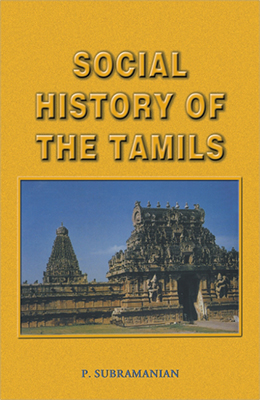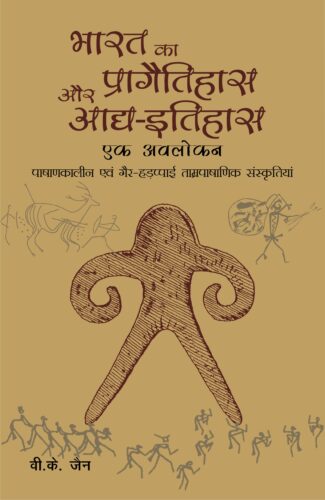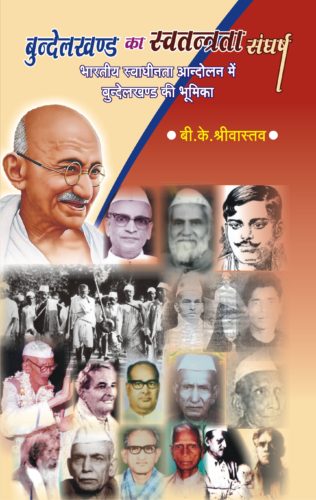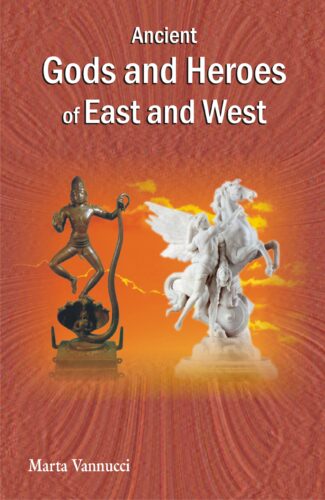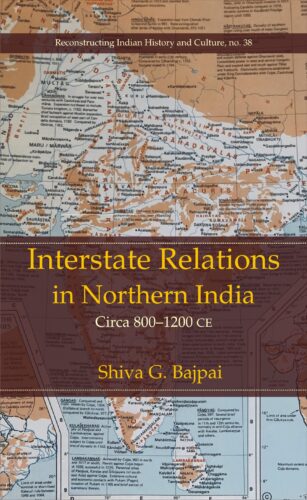

Interstate Relations...
Interstate Relations in Northern Indian
Reconstructing Indian History and Culture by: Shiva G. BajpaiInterstate Relations in Northern India (8001200 ce) is a critical analysis of the Empire and State, the RÀja-Maõçala, in medieval India. The book is an excellent interpretation of the composition of the state, the ancient Indian principles and categories of interstate relations dealing with rÀjya and maõçala (circle of states).
This thoroughly researched work examines the state and its seven constituent elements (rÀjya). While avoiding the temptation of using Western categories and principles of international law, it provides an explanation of classification of states based on power, independence, tribute and political allegiance. In particular, it defines and analyses the ÈÀçguõya (sixfold policy of sandhi (peace), vigraha (war), yana (marching), Àsana (staying quite), dvaidhÁ-bhÀva (dual policy) and saÚraya (seeking shelter thereby correcting earlier misconceptions)). Furthermore, the theoretical formulations of circle of states and interstate relations between (8001200 ce) have been placed in a historical context, and well attested by historical instances in north India. Based on geopolitics and power it demonstrates the impact of political thought on political expedients, stratagems and events, at a crucial time in Indian history. The influence of ideas on political behaviour of kings and trajectories and policies of kingdoms of the Candellas, PÀlas, ParamÀras, PratihÀras, RÀjpÂts, CÀÒukyas, RÀÈÇrakÂÇas, Arabs and CÀhamÀnas have been substantiated with facts and evidences.
The author, Dr Shiva Gopal Bajpai, is to be congratulated for providing an accurate analysis of ancient Indian political theory and interpretation of its practical application by medieval rÀjÀs, thereby making a significant contribution to our understanding of Indian history.
Original price was: ₹1,400.00.₹1,260.00Current price is: ₹1,260.00.
ISBN: 9788124610343
Year Of Publication: 2020
Edition: 1st
Pages : xx, 377
Bibliographic Details : Index; 23 cm
Language : English
Binding : Hardcover
Publisher: D.K. Printworld Pvt. Ltd.
Size: 23
Weight: 770
The book thus delves deep into the philosophies of both Bdaryaa and akara in enunciating the essential features of Brahman and Its association with the world. It thus discusses topics such as what sort of cause Brahman is?, and what sort of material causality is to be ascribed to It? It also addresses the conflicting views on the nature of Brahman like that of Vivarttavda and of Rmnuja’s Sagua-Brahman.
Foreword
Preface
Acknowledgements
Abbreviations
1. Introduction
Commentaries on the Manusmr̥ti
Manubhāṣya of Medhātithi
Manuṭīkā of Govindarāja (c.1050-80)
The Manvarthavivr̥ti of Sarvajña Nārāyaṇa
The Manvarthamuktāvalī of Kullūkabhaṭṭa
Commentaries on the Yājñavalkyasmr̥ti
Digests on Polity
The Rājadharmakāṇḍa of the Kr̥tyakalpataru
The Purāṇas
Works on Polity
Nītivākyāmr̥ta
Yuktikalpataru
Mānasollāsa
Arhannīti or Laghvarhannīti
Śukranītisāra
Rājanītiratnākara
Lekhapaddhati
Part 1
State
2. Rājya: The State and Its Constituents
The Seven Constituents of the State (Saptāṅga Rājya)
Svāmī (the Lord or Sovereign)
Amātya (Minister)
Rāṣṭra or Janapada (Territory and Its People)
Durga or Pura (Fort or Fortified City)
Kośa (Treasury)
Bala or Daṇḍa (Army or Armed Forces)
Mitra or Suhr̥t (Ally or Friend)
Classifications of States and the
Scope of Interstate Relations
3. Maṇḍala: Circle of States
The Theory of Maṇḍala (Circle of States or
Kings, or Interstate System)
The Threefold Maṇḍala
Circle of Thirteen Kings or States:
An Extension of the Threefold Maṇḍala
The Fourfold Maṇḍala
Circle of Separate Groups
The Standard Maṇḍala
The Vijigīṣu’s Maṇḍala of Ten Kings
The prakr̥ti-maṇḍala
Somadeva’s Maṇḍala of Ten Kings
Constituents of the Maṇḍala
Vijigīṣu (Would-be Conqueror or
a King Intending Conquest)
Ari (Enemy)
Mitra (Ally)
Madhyama (Middle King or State)
Udāsīna (Neutral or Indifferent King or State)
Principles and Precepts of the Theory of Maṇḍala
The Purpose and the Significance of the
Theory of Maṇḍala: Its Historical Relevance
Part 2
Ṣāḍguṇya (Sixfold Policy)
4. Introduction to Sixfold Policy
Concept of Power (Śakti)
5. Sandhi: Treaty, Compact or Peace; Policy of Peace
Meaning of Sandhi
Nature of Sandhi
Factors and Circumstances Connected with
Sandhi
Parties with Whom Treaties Should not Be
Concluded
Kinds of Sandhi
Four Activities Connected with Sandhi
Treaty-Making
The Binding Character of Treaties
and Their Maintenance
The Breaking of Treaties
Repairing a Treaty
6. Vigraha: Hostility or War
Concept of War
Heroic Concept of War
War as a Duty
The Politic Concept of War
Causes of Vigraha
Objectives of War
Scope for Diplomatic Expedients
The Military Code
Military Code
Devastation of the Enemy’s Kingdom and the
Oppression of His Subjects
Booty
Settlement of the Conquered Kingdom
7. Yāna: Expedition or Marching
Factors and Circumstances Connected with Yāna
Kinds of Yāna
Vigr̥hya Yāna
Sandhāya Yāna
Sambhūya yāna
prasaṅga yāna
Upekṣā yāna
śīghragā yātrā
Kulyā yātrā
8. Āsana: Staying Quiet or Pause: Policy of
Watchful Waiting
Factors and Circumstances Connected with Āsana
Kinds of Āsana
Vigr̥hyāsana
Sandhāyāsana
Sambhūyāsana
Prasaṅgāsana
Upekṣāsana
Prītyāsana
Mārgarodhāsana
Rāṣṭrasvīkaraṇāsana
Ramaṇ̣īyāsana
Dūramārgāsana
Pralobhāsana
Parādhīnāsana
9. Dvaidhī-bhāva: Dual Policy or Duplicity
Factors and Circumstances Connected with
Dvaidhī-bhāva
Kinds of Dvaidhī-bhāva
10. Saṁśraya: Seeking Shelter
Factors and Circumstances Connected with Saṁśraya
Kinds of Saṁśraya
Saṁśraya with Whom?
Obligations of the King Seeking Shelter
Part 3
Political Expedients
11. Upāyas: Political Expedients
Sāma (Conciliation)
Dāna (Gifts, Concessions or Bribery)
Bheda (Sowing Dissension)
Daṇḍa (Force, Chastisement or War)
Upekṣā (Indifference)
Māyā (Illusion)
Indrajāla (Black Magic or Incantation)
The Precepts of the Application of Upāyas or
Guidelines of Diplomacy
Scope and Role of the Upāyas
Instruments of Diplomacy
12. Conclusion
Bibliography
Index




